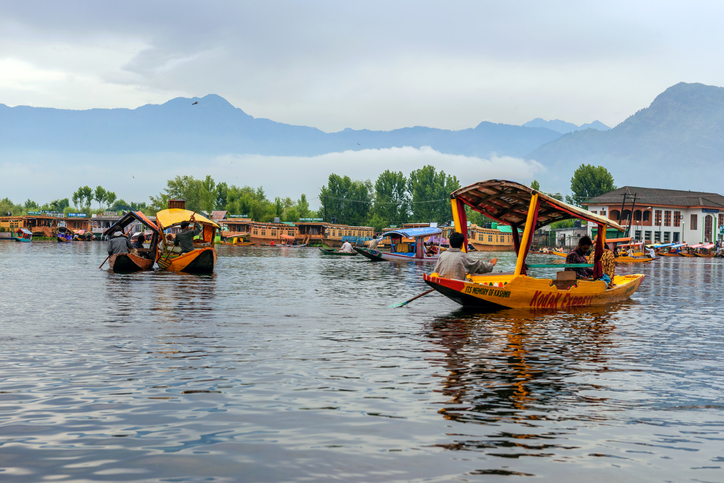After witnessing decades of violence, the Union Territory of Jammu and Kashmir has witnessed tremendous changes in economic activities after the abrogation of Article 370.
After Article 370 was repealed, Jammu and Kashmir became subject to 890 central laws, while 250 unfair state legislation were eliminated. Additional 130 state legislation have undergone changes. The elimination of certain hurdles has led to a conducive business atmosphere. Due to the country’s strong leadership and increased stability in the region, foreign businesses are considering investment opportunities here.
The Lulu Group, Apollo, EMAAR, and Jindal are among the few commercial organizations that have investments in Jammu and Kashmir. The UT has inked five more Memorandum of Understandings (MoUs) with Al Maya Group, MATU Investments LLC, GL Employment Brokerage LLC, Century Financial, and Noon E-commerce, respectively. Magna Waves Pvt. Ltd. and Emaar Group, and Lulu International have also signed a single Letter of Intent.
In 2021, the Union Territory attracted investments of USD 2.5 billion, showcasing the region’s vast opportunities and business potential.
Even Indian Prime Minister Narendra Modi met with delegates from the United Arab Emirates seeking business opportunities in Jammu and Kashmir, noting that private investment bids in the Union Territory have topped Rs 38,000 crore.
The government is fully aware that investments play a crucial role in economic development because they lead to the accumulation of public wealth as well as advancements in science and technology. As a result, a framework for increasing the region’s manufacturing viability and economic growth is established.
The Jammu and Kashmir government established a five-person committee on June 23 to communicate with the Minister of External Affairs regarding the G20 meetings. India is starting to get ready for the big event.
In order to promote fresh investment and bring industrial development to the block level, the J&K administration introduced a new industrial development scheme with an outlay of Rs 28,400 crore in January of last year. The new regulation, valid until 2037, also made it possible for more prominent investors to invest in J-K.
Before the repealing of Article 370, there were not many investments in Jammu and Kashmir.
The Indian government is aware that investments play a key role in the economic development of any region. Hence, it is no letting stone unturned to establish a framework for increasing the region’s manufacturing viability and economic growth.
Infrastructure development in the Union Territory got a big push after the abrogation of Article 370.
After the abrogation of Article 370, the execution of new roads, tunnels and other basic Infrastructure has gained momentum to ensure the overall development of J&K.
Noting that roads are now being built at twice the speed as before, the Lt Governor of the Union Territory Manoj Sinha had said there has been a radical change in its progress under Pradhan Mantri Gram Sadak Yojana.
“Last year, 2,402 km of roads were constructed under PMGSY in the Jammu division. Since August 2019, taking into account the figures of October 2021, 3,885 km of roads were built under PMGSY in Jammu division alone,” he said earlier.
These projects will enhance tourism in the region by multifold.
Underscoring that a robust road network and modern transportation are key to economic growth, the prosperity of the region and transformation in every sphere of life, Sinha had said the foundations of Rs 11,721 crore National Highways projects, besides seven new projects, will pave the way for sustainable development in Jammu and Kashmir, reported Business Standard earlier.
The new mega road projects will open up new livelihood avenues for the local population and enhance tourism and business activities, besides strengthening the strategic grid by ensuring all-weather connectivity. (
Advertisement











